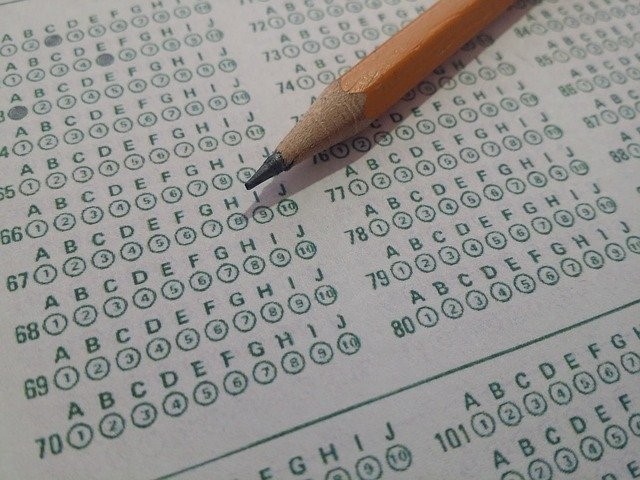In 2020, the Telluride Foundation awarded a total of $419,000 in scholarships to 17 high-achieving students, from the six regional school districts. These scholarships included six new Chang Chavkin Scholar awards, up to $60,000 per student, for first-generation students. These students not only experienced a nontraditional senior year and graduation, but now they are having to make decisions about whether to pursue college, either online, on-campus, or a hybrid of these options, or take a gap year. While these are unprecedented times, students are learning how to find solid ground and either continue to pursue their college education or put their education on hold.
College Bound
College campuses across America are providing a diverse range of reopening plans. Depending on the school, students are either being offered an entirely remote and off campus option or a hybrid of remote and in-person education on campus. Students are working through their sense of safety and satisfaction. They are asking,” Will I learn?” “Will it be fun?” “Will it be worth the cost?” “Is there a better way to spend my time during this time of uncertainty?” For some, a college education is the goal, and those students are ready to stay calm, focused, and flexible. They are moving to campus, if offered, and following campus guidelines to ensure their progress toward graduation regardless of the compromises or tradeoffs.
One local student, a Chang Chavkin Scholar attending Cornell, will drive back to New York from Colorado before even receiving his bill. “I received an email that I needed to move into my apartment two weeks before I would be notified of my financial award. I basically have to trust that it will all work out without knowing anything for sure.”
A wide range of experiences are now commonplace among students heading to college this fall. Rather than knowing what to expect, many students are learning to tolerate not knowing if their classes will be online or in person. One student’s schedule was coded with Combined, In-Person and Online, leaving him to wonder exactly how his school day or week would look. After calling his school and waiting on hold for two hours, he hung up, and decided he would head to campus regardless. “I know I want an education. Right now, I have to figure out how to be okay with not knowing a whole lot more than that.”
Students, who are committed to accepting what their college will offer, are headed into unprecedented territory. They are willing to not only trust that things will work out, but that they will adjust to ongoing changes even if that means returning home at a moment’s notice.
College Admission Criteria
As for rising high school juniors, students are scrambling to figure out how to understand and navigate this new era of change. Students will need to focus on what is within their control. While their SAT/ACT tests were all cancelled last spring, they can explore test optional policies, now being implemented by many schools. Colleges and universities are having to change how they recruit their next incoming class. Many higher education institutions have already stated they will not require test scores like the SAT/ACT.
For example, Fair Test, the National Center for Fair and Open Testing, reported as of August 13t,h more than 60% of 4-year colleges and universities in the U.S. will not require applicants to submit ACT or SAT scores for fall 2021 admission.
“It is attractive for many applicants to know that they will be evaluated as ‘more than a score’,” explained Bob Schaeffer, Executive Director of Fair Test. Fair Test also encourages schools to eliminate ACT/SAT requirements for so-called ‘merit’ scholarships and admission to special programs, such as honors colleges. That’s the only way to assure students that they will be treated even-handedly.”
The Admissions Game
Admissions teams are encouraging prospective students to trust them to take into consideration the current state of our world. College admissions teams are aware that there is not an even playing field. Colleges are reinventing an age-old admission process in the span of a couple of months, and they don’t have another choice.
Because life is different now, the Common Application has changed the essay questions so that students can select one that best describes them in a way that is not already included elsewhere in their application. Applicants are encouraged to consider highlighting a part of their persona that they discovered during quarantine. Students are also encouraged to list the activities they had lined up this past spring and summer and add “Cancelled Due to Covid” next to those items rather than leave them off.
Admissions teams want to know how students have spent this time. Did they get involved in their community? Did they participate in a protest? Did they learn something new? What did they learn about themselves and others? What insight have they gained given this experience thus far?
A local rising senior, currently working on her essay, is writing about how she experienced being “the only one in my class to truly quarantine.” She is crafting her essay around her nature as being a rule-follower, and what she has learned about herself given her experience with many of her peers who continued to live life as usual. Having four plus months of non-scheduled time is rare, and the college admissions teams want to know how students chose to spend this special time.
Underrepresented Students
One major question for next year is, “Are we going to widen the gap in higher education for those students who are underrepresented?” Some changes may make the playing field a bit more level. Among them are the deemphasis on standardized tests, which many see as biased, and the move to virtual visits, which eliminates the advantage long enjoyed by students who could afford to travel for campus tours and those fortunate enough to attend the high schools where college recruiters tend to visit.
But, on the other hand, wide discrepancies in access to the internet and to college guidance counselors tend to exacerbate inequities. Already, it seems to have driven a drop in students filing for federal student aid. Given the current prediction that we will see a drop in FAFSA completion, especially for underrepresented students, The Chang Chavkin Scholars Program has offered local schools a virtual FAFSA Completion Workshop, with the goal of reaching a 100% FAFSA completion rate for all regional schools.
With so many factors at play, it is hard to know for sure how our local rural students will fair this fall in the admission process. There does seem to be a silver lining from this upending of college admissions. While schools scramble to reinvent their criteria for evaluating applicants, some students may have a unique opportunity to be more carefully considered rather than prematurely judged by a test score alone.
Shawn L. Abbott, Vice Provost for Admissions at Temple, explained it this way, “We really haven’t historically gone to that level of minutia detail in evaluating one’s candidacy for admission. Now, we’re sort of going to have to, and [students are] going to get a closer look and a chance to stand out in [the] admissions process through other attributes.”
This offers our local rural students and, most especially, our Chang Chavkin Scholars, who are first generation and low income, a great opportunity to be considered based on real life experiences, the challenges have they overcome, and the level of responsibility they taken on at home and in their community. There is a growing understanding that well beyond a test score, there are students who deserve credit for skills such as persistence, willingness to take risks, and their ability to overcome adversity.



